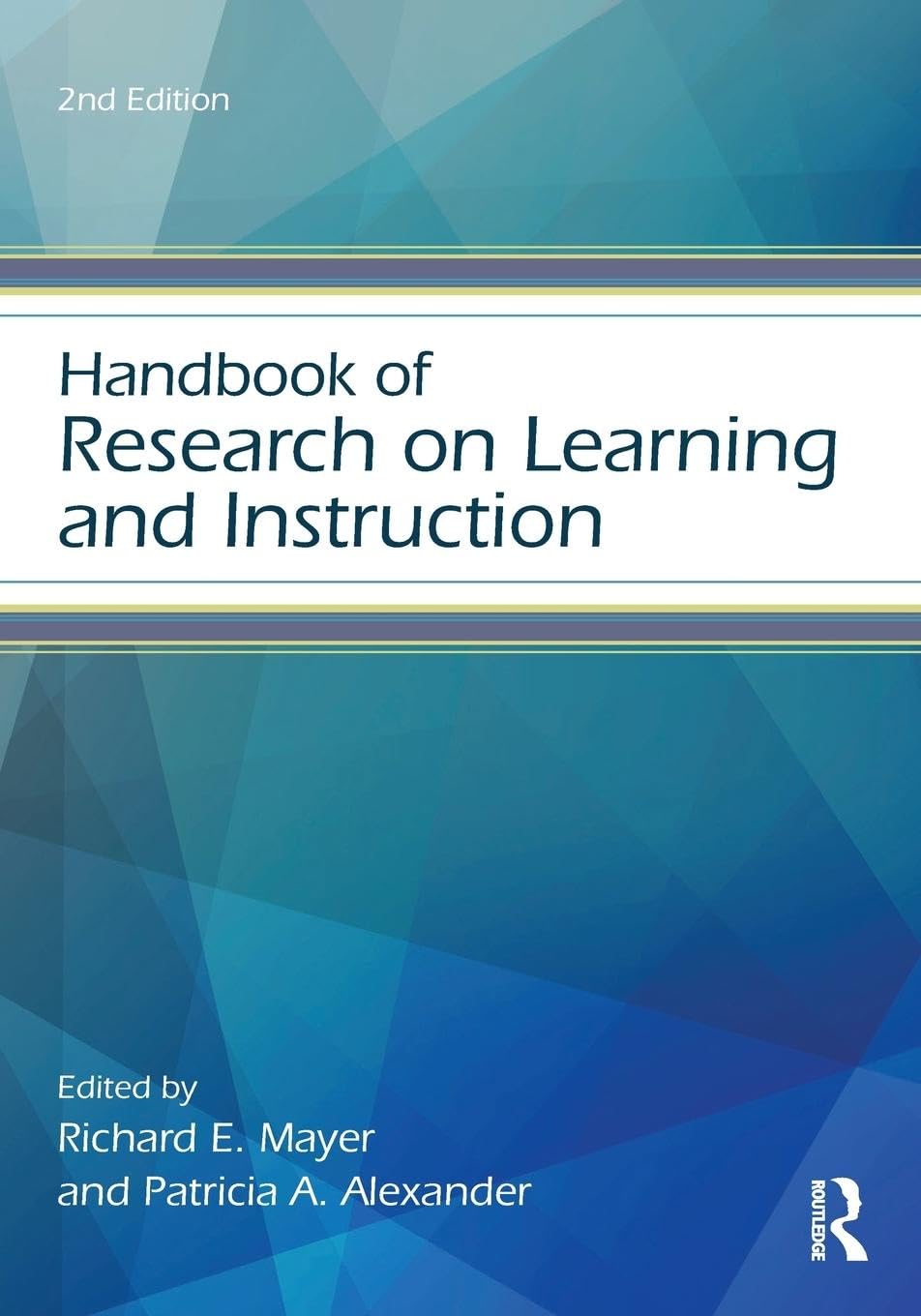Handbook of Research on Learning and Instruction (Educational Psychology Handbook)
Handbook of Research on Learning and Instruction (Educational Psychology Handbook) is backordered and will ship as soon as it is back in stock.
Couldn't load pickup availability
Genuine Products Guarantee
Genuine Products Guarantee
We guarantee 100% genuine products, and if proven otherwise, we will compensate you with 10 times the product's cost.
Delivery and Shipping
Delivery and Shipping
Products are generally ready for dispatch within 1 day and typically reach you in 3 to 5 days.
Book Details
-
Author: Richard E. Mayer
-
Publisher: Routledge
-
Edition: 2
-
Binding: Paperback
-
Format: Illustrated
-
Number of Pages: 596
-
Release Date: 13-10-2016
-
ISBN: 9781138831766
-
Package Dimensions: 10.0 x 7.0 x 1.3 inches
-
Languages: English
About the Book
Handbook of Research on Learning and Instruction, Second Edition is an essential resource that explores the exciting advancements in the science of learning and instruction over the past 30 years. Written by leading researchers from across the globe, this volume offers a comprehensive overview of the latest research findings, showcasing how educational practices can be guided by solid evidence about what works in learning and teaching.
The book is divided into two main sections: Learning and Instruction.
Section 1: Learning
-
Cognitive Processes: The chapter delves into how people learn in various domains such as reading, writing, mathematics, science, history, second languages, and physical education.
-
Critical Skills: Topics such as critical thinking, self-regulation, studying, motivation, and strategies for acquiring knowledge are also explored.
Section 2: Instruction
-
Instructional Methods: This section covers effective teaching strategies, including feedback, examples, questioning, tutoring, simulations, inquiry, collaboration, and adaptive instruction.
-
Technology in Instruction: New chapters in the second edition discuss using technology for individualizing instruction and helping students develop learning strategies.
What’s New in the Second Edition:
-
Thorough Revision: Each chapter has been updated to integrate recent advances in educational psychology.
-
New Chapters: Two new chapters are added, focusing on learning strategies and technology-enhanced instruction.
-
Broad Coverage: The book spans a variety of academic domains, learning constructs, and instructional methods, making it applicable for a wide range of learners—from K-16 students to adult learners.
Reviews
"This is an extremely informative handbook of the research and theory on learning and instruction. The coverage is superb, the writing organized and accessible. Scholars, teachers, and advanced students will find this volume indispensable. You will be reaching again and again for this resource."
— Mark McDaniel, Co-Director of the Center for Integrative Research on Cognition, Learning, and Education (CIRCLE), Professor at Washington University, USA
"Two of the world's leading researchers in cognitive processes and instructional design, Richard E. Mayer and Patricia A. Alexander, have compiled the work of the major figures in our discipline in this edited collection. It is an essential read for anyone with a serious interest in this area."
— John Sweller, Emeritus Professor of Educational Psychology, University of New South Wales, Australia
About the Author
-
Richard E. Mayer is a Distinguished Professor of Psychology at the University of California, Santa Barbara (UCSB), USA. He is renowned for his work in cognitive psychology, particularly in the area of educational psychology.
-
Patricia A. Alexander is the Jean Mullan Professor of Literacy and Distinguished Scholar-Teacher in the Department of Human Development and Quantitative Methodology at the University of Maryland, USA.
This book is a vital resource for graduate students, researchers, and practitioners who seek an evidence-based approach to learning and instruction. Whether you're looking to understand how people learn or seeking strategies for effective teaching, this handbook will provide you with the research-driven insights you need.





